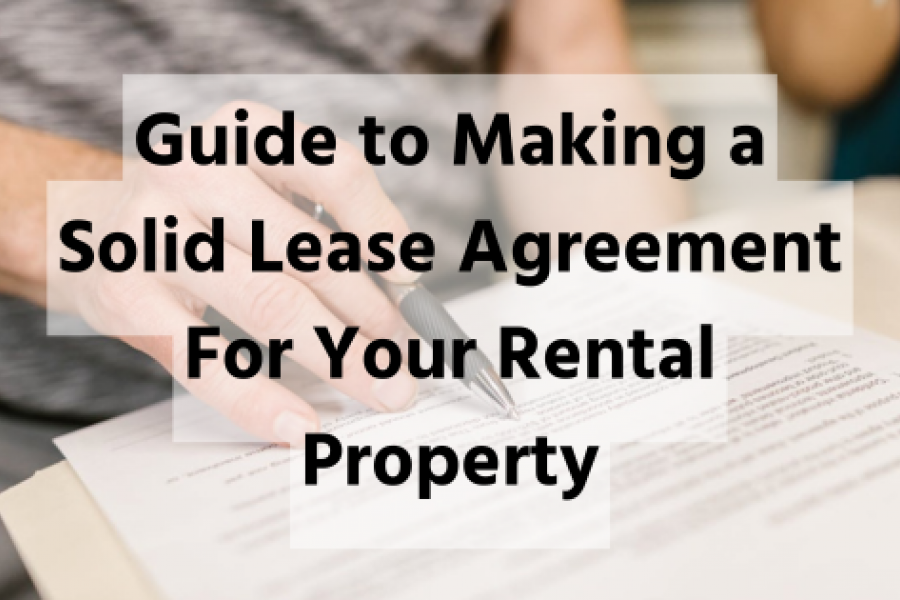
Are you finding it challenging to create a lease agreement that truly protects your interests while keeping things clear for your residents? Crafting a solid lease agreement is more than just a formality—it’s a crucial tool that safeguards your property, outlines expectations, and ensures a harmonious landlord-resident relationship.
A well-drafted lease can help you avoid misunderstandings, manage disputes, and comply with legal requirements. In this guide, we’ll explore the essential elements of a strong lease agreement, equipping you with the knowledge to draft a document that not only protects your rights but also fosters positive interactions with your residents.
Understanding Lease Agreements: The Basics
At its core, a lease agreement is a legally binding contract between you, the landlord, and your resident. It outlines the terms and conditions under which the rental property will be occupied. This agreement serves as a reference point for both parties, setting clear expectations and responsibilities.
Understanding the basics of lease agreements involves recognizing their role in managing your rental property efficiently and legally. A well-crafted lease ensures that both you and your resident are on the same page, minimizing potential conflicts and promoting a smooth rental experience.
Essential Clauses to Include in Your Lease Agreement
Lease Term and Renewal Options
The lease term specifies the duration of the rental agreement—whether it’s a month-to-month arrangement or a fixed-term lease. Clearly defining this term helps prevent confusion and ensures both you and your resident understand the length of the tenancy.

Including renewal options gives both parties a chance to discuss extending the lease under agreed-upon terms. This flexibility can be beneficial, allowing you to maintain a stable rental income while providing your resident with the security of knowing they can continue their stay if desired.
Rent Amount and Payment Terms
One of the most critical aspects of your lease agreement is the rent collection and payment terms. Clearly state the monthly rent, due date, and acceptable payment methods. This section should also outline any late fees or penalties for missed payments, as well as procedures for handling bounced checks.
By specifying these details, you set clear financial expectations and help prevent disputes related to payments, ensuring that both you and your resident are aware of your financial obligations.
Legal Considerations and Compliance
Local and State Regulations
To create a lease agreement that stands up to legal scrutiny, it's essential to be familiar with local and state regulations governing rental properties. These laws can vary significantly, covering everything from maximum security deposit amounts to eviction procedures.
Staying compliant with these regulations not only protects you from legal challenges but also ensures that your lease agreement aligns with the requirements of your jurisdiction. Regularly review local rental laws and consider consulting a legal professional to ensure your lease agreement meets all necessary legal standards.

Fair Housing Laws
Fair Housing Laws prohibit discrimination in rental practices based on race, color, religion, sex, national origin, disability, or familial status. Your lease agreement should adhere to these laws, ensuring that all potential residents are treated equally and fairly.
Including a statement about your commitment to fair housing practices in your lease agreement reinforces your dedication to providing an equitable rental experience and helps avoid legal issues related to discrimination.
Responsibilities and Rights of Landlords and Residents
Maintenance and Repairs
A clear outline of maintenance and repair responsibilities is crucial in your lease agreement. As a landlord, you are typically responsible for keeping the property in a habitable condition, which includes addressing major repairs like plumbing issues or electrical failures.
Specifying these responsibilities in the lease agreement helps prevent misunderstandings and ensures that both parties know who is responsible for what. This clarity can lead to quicker resolutions of issues and a more harmonious landlord-resident relationship.
Privacy and Access Rights
Your lease agreement should clearly state your rights and the procedures for accessing the rental property. While you have the right to enter the property for repairs, inspections, or emergencies, it’s important to provide reasonable notice to your resident—typically 24 to 48 hours, depending on local laws.

This ensures you respect their privacy and comply with legal requirements. Including these details in the lease helps establish boundaries and expectations, fostering trust and preventing potential disputes related to access and privacy.
Handling Lease Violations and Disputes
Addressing lease violations effectively requires a clear procedure outlined in your lease agreement. This section should describe how you will handle breaches of the lease terms, such as late rent payments or unauthorized modifications to the property.
Include steps for issuing a formal notice of violation, the timeframe for addressing the issue, and potential consequences if the violation is not resolved. This will create a structured approach to managing disputes and ensure that both you and your resident understand the process for handling issues.
Resolving Disputes Amicably
Disputes can arise even with the best agreements in place, but a well-structured lease can help in resolving them amicably. Include a section in your lease agreement that encourages open communication and outlines steps for mediation or arbitration if disputes cannot be resolved through direct negotiation.
Emphasizing a collaborative approach can prevent conflicts from escalating and promote a more positive rental experience.
Bottom Line
Creating a well-crafted lease agreement is key to a successful landlord-resident relationship. For expert assistance in drafting a lease that protects your interests and meets legal requirements, turn to Campus Connection Property Management.
Their team of professionals is dedicated to providing comprehensive support, from crafting clear and effective lease agreements to managing day-to-day property concerns. Trust Campus Connection Property Management to ensure your lease agreement is solid, compliant, and tailored to your needs.
